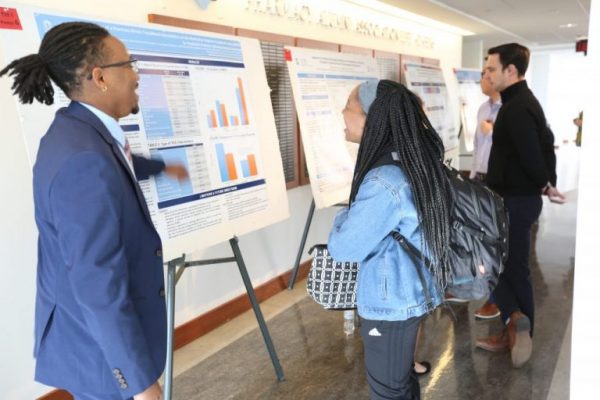November 6, 2020
 Four years ago, the UNC Eshelman School of Pharmacy launched the Research and Scholarship in Pharmacy (RASP) pathway within its newly redesigned Pharm.D. curriculum.
Four years ago, the UNC Eshelman School of Pharmacy launched the Research and Scholarship in Pharmacy (RASP) pathway within its newly redesigned Pharm.D. curriculum.
The elective pathway was designed to equip pharmacy students with research and scholarship skills that can be used to positively impact various pharmacy career paths, said Craig Lee, Pharm.D., Ph.D., faculty director of the RASP program.
“RASP was created to help the next generation of pharmacy leaders learn how to create and disseminate new knowledge that can optimize medication use and advance pharmacy practice. We accomplish this goal by integrating Pharm.D. students into the research and scholarship programs of our School’s world-class faculty,” Lee said.
RASP is a longitudinal pathway built around a faculty-mentored scholarly project where each student learns how to frame an answerable research question with a faculty mentor; generate and interpret relevant data; and communicate their findings in both an oral and written form.
Project types range from preclinical to translational and clinical, and from health services to epidemiologic, behavioral, and quality improvement, among other subjects.
During their RASP experience, students gain skills and achieve learning outcomes through self-directed learning, attending and actively participating in three elective courses, development and execution of their project, guidance and instruction by their faculty mentor, and completion of four scholarly deliverables: writing and presenting a project proposal, presenting a poster, and writing a manuscript.
The RASP leadership team has looked back at the program to evaluate its design, implementation and initial impact. They’ve done so in their manuscript “Implementation and Initial Evaluation of a Research and Scholarship Training Pathway in a PharmD Curriculum,” which was recently published online by the American Journal of Pharmaceutical Education and is slated to appear in an upcoming issue of the journal.
In their review, UNC Eshelman School of Pharmacy researchers analyzed a sample size of 50 students who completed the RASP program over the first two cohorts to assess the pathway’s impact on the student experience.
Kathryn Morbitzer, Pharm.D., M.S., who led the manuscript process said, “Our evaluation of the first two RASP cohorts demonstrated that the RASP pathway feasibly and effectively provided a mechanism for our Pharm.D. students to engage in a faculty-mentored longitudinal research experience that fostered skill development and opportunities for scholarship. We saw high rates of student satisfaction, low rates of student attrition, and high rates of scholarly output. This included a publication rate of 40% from our first cohort, well above previous publication rates reported of other Pharm.D. research experiences.”
Since its implementation, 103 students (over four Pharm.D. cohorts) have completed or are currently enrolled in the RASP program. Their research projects have been completed in collaboration with 56 distinct faculty mentors. Projects are supported by UNC Eshelman School of Pharmacy faculty in each of the five academic Divisions and on both the Chapel Hill and Asheville campuses.
Lee said the School is in the process of enrolling the fifth cohort of participants. For more information about the elective pathway, visit the RASP website.
All authors on the manuscript include Kathryn A. Morbitzer, Pharm.D., MS, Jacqueline E. McLaughlin, Ph.D., MS, Sachiko Ozawa, Ph.D., M.H.S., Ryan Beechinor, Pharm.D., Julie Dumond, Pharm.D., MS, Christina Pomykal, MS, Antonio Bush, Ph.D., Qisheng Zhang, Ph.D., Delesha Carpenter, Ph.D., MSPH, and Craig R. Lee, Pharm.D., Ph.D.
Latest News

Dean Angela Kashuba receives Carolina Alumni Faculty Service Award

RASP poster presentations capture student research


